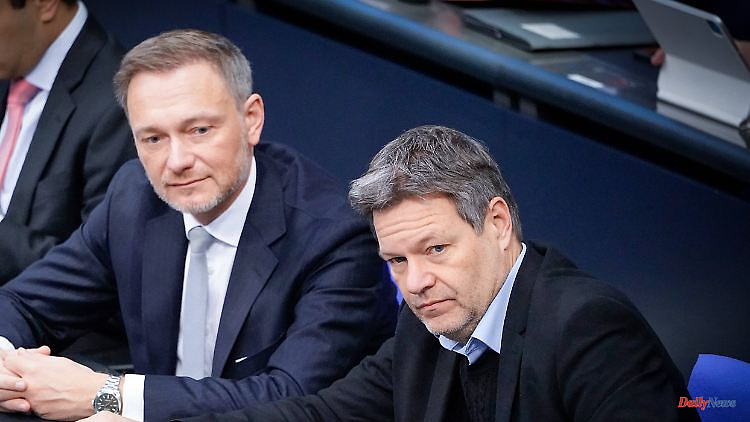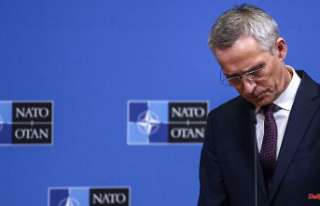In the dispute between Berlin and Paris over hydrogen from nuclear power, President Macron receives support from the FDP. The coalition partner does not want to support the No of the Greens. That could mean that Germany has to abstain in Brussels.
In the traffic light coalition there is a new dispute between the FDP and the Greens. After the Ministry of Economics had ruled out for the federal government that hydrogen produced with nuclear power would be classified as "renewable" in the EU, the FDP is now opposed. Finance Minister Christian Lindner and Research Minister Bettina Stark-Watzinger emphasized that so-called red hydrogen is also needed. "We need all colors of hydrogen," Lindner said. Germany may now have to abstain from voting on the issue in the EU.
The background is the Renewable Energy Directive (RED II) currently being negotiated in Brussels. It should give a boost to the expansion of renewable energies. The EU countries that, like France, will continue to rely on nuclear power in the future, want to achieve a classification of nuclear power hydrogen as "renewable". However, the federal government and the majority of the other 27 EU countries fear that this will slow down the expansion of wind and solar energy. "We as the federal government clearly reject that," a spokeswoman for the Ministry of Economic Affairs said on February 9. In Paris there was talk of a dispute between the two capitals.
Hydrogen produced with renewable energies is referred to as "green hydrogen". If it is produced with gas, it is called "blue hydrogen", if it is produced with nuclear power it is called "red hydrogen". Hydrogen is considered a crucial piece of the puzzle in order to be able to carry out climate-neutral industrial processes in the future, for example in the steel industry. Local production and import options are therefore important in order to build a hydrogen infrastructure.
In principle, the FDP is now standing by the side of French President Emmanuel Macron. "In competition with the USA and China, we now have to do everything we can to accelerate the ramp-up of the European hydrogen economy," said Stark-Watzinger. "A dispute with France about hydrogen is of little help. Rather, we have to be open-minded about hydrogen in order to pick up the pace." This also applies to the national hydrogen strategy. "We must not continue to narrow this down to two colors." It's not about colors, but about how much CO2 the production causes.
FDP boss Lindner also indicated that the federal government would not take a stance against France: "It's hard for me to imagine that Germany would take a stand against it in Europe." The FDP and the Greens had already clashed in 2022 over the question of extending the lifespan of the last German nuclear power plants. In the end there was a word of power from Federal Chancellor Olaf Scholz and the duration of the three reactors was extended until mid-April 2023.
Several debates are mixed up in the EU on the subject of hydrogen. Because the federal government had previously accepted the French demand that nuclear power used be counted towards the CO2 reduction targets. "We will also ensure that both renewable and low-carbon hydrogen can be taken into account in Europe's decarbonization targets," says the Franco-German declaration adopted in Paris on January 22.
There is also a dispute over the planned billion-euro hydrogen pipeline, which is to run from the Iberian Peninsula via France to Central Europe and is supported primarily by Spain and Germany. France is now threatening to delay this project. However, EU diplomats pointed out that France could also feed hydrogen produced with nuclear power into this pipeline. As with nuclear power, it is no longer possible to distinguish in a common European network how hydrogen or electricity was produced.












